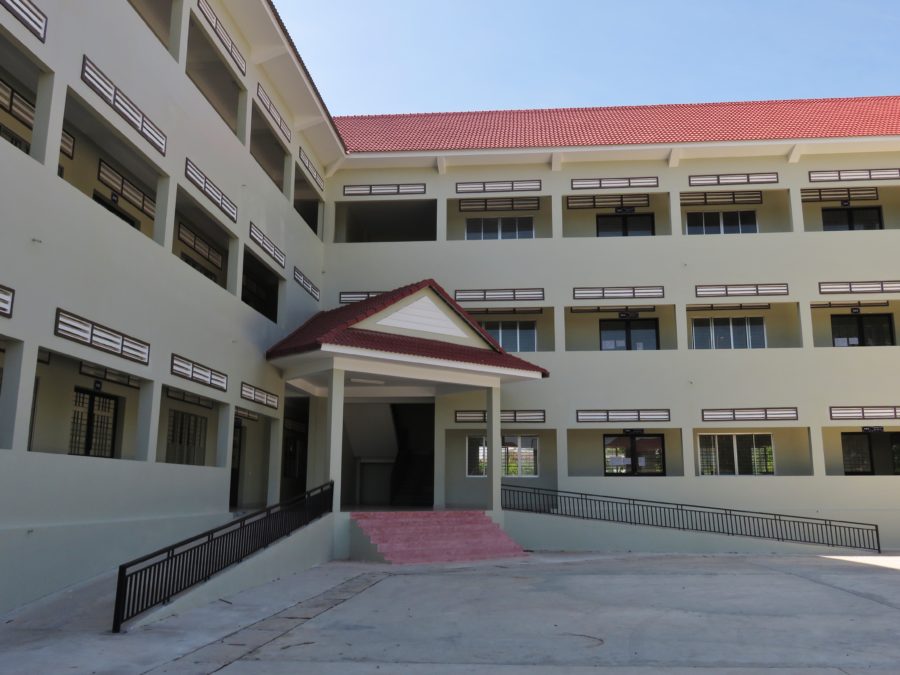សន្និសីទគិលានុបដ្ឋាក និងឆ្មបឆ្នាំ២០២៤

Cambodian Roadmap for implementation of ASEAN MRA-NS
On the way to become an ASEAN recognised nurse
The ASEAN single market offers considerable potential for lesser developed ASEAN member states like Cambodia, as they will be able to access regional markets more easily and realise economies of scale. This also poses challenges because it requires leveraging the knowledge, skills and creativity of its labour force.
For ASEAN, the health care sector is a priority. ASEAN member states are expected to boost health spending to provide better healthcare services. However, the lack of qualified health care professionals and the chronic shortage of nurses is a barrier. In Cambodia there is less than one nurse or midwife covering 1,000 people while in Germany, in comparison, there are eleven.
Across all ten countries within the Association of South East Asian Nations (ASEAN), work is progressing on strengthening the nursing profession. Each country’s government signed the Mutual Recognition Arrangement on Nursing Services (MRA-NS), which aims at addressing some of the imminent challenges. The objectives that each government, including the Royal Government of Cambodia (RGC), agreed to are:
- Get better nursing professional standards and qualifications in Cambodia to match other ASEAN countries
- Improve professional nursing services in Cambodia
- Give more opportunities for capacity building and education of nurses in Cambodia
- Make it easier for Cambodian nurses with a Bachelor of Science Nursing to work in other ASEAN countries
In each country, one organisation in the health sector is responsible to work on these objectives. In Cambodia it is the Cambodian Council of Nurses (CCN). CCN also represents Cambodia at ASEAN level at the ASEAN Joint Coordinating Committee on Nursing (AJCCN) which is the committee under the ASEAN Healthcare Services Sectoral Working Group (HSSWG) that discusses matters pertaining to facilitation of cooperation on MRA-NS.
Cambodian Council of Nurses (CCN) as main implementer of ASEAN MRA-NS
The CCN is the recognised nursing regulatory authority for Cambodia. It was established under the law by the RGC to regulate all nurses in Cambodia. CCN is led by nursing professionals who were appointed by the Ministry of Health and elected by their colleagues. They understand the role of nurses and their professional practice. CCN is responsible for protecting the public of Cambodia by ensuring all nurses:
- are registered with CCN and pay the annual fee to their Provincial Nursing Council for the right to provide nursing care to patients;
- are aware of, and follow the CCN Code of Ethics and professional nursing standards when providing professional nursing practice;
- are investigated and if proven, an appropriate penalty applied when a report of professional misconduct of a nurse is received.
CCN will continue to focus on increasing the registration of all nurses in Cambodia to 100%; educating nurses on the CCN Code of Ethics and professional nursing standards and how they guide professional practice; introducing new regulatory functions such as continuing professional development; raising the profile and recognition of a regulated nursing profession in contributing to quality, safe patient care and strengthening the quality of nursing education and nursing practice.
Also CCN will work in partnership with the Ministry of Health and the Cambodian Nurses Association to improve nursing care quality of services and strengthening the quality of pre-service education and in-service training.
CCN’s organisational structure is determined by the law and comprises a National Council located in Phnom Penh, five Regional Councils and 25 Provincial Councils.

